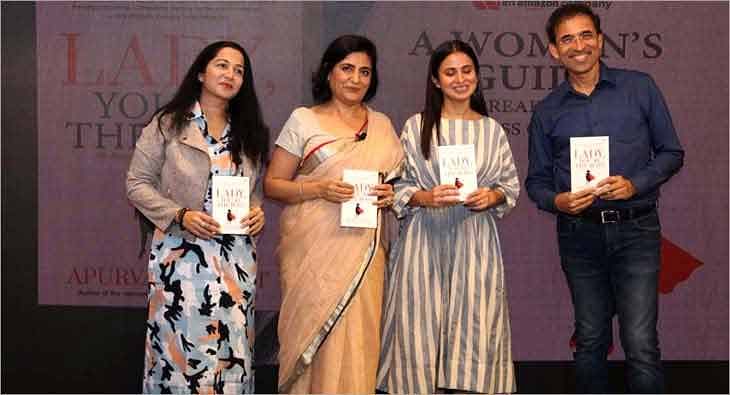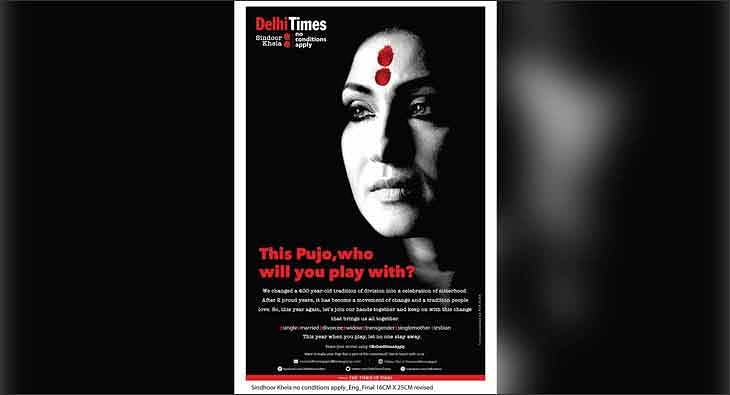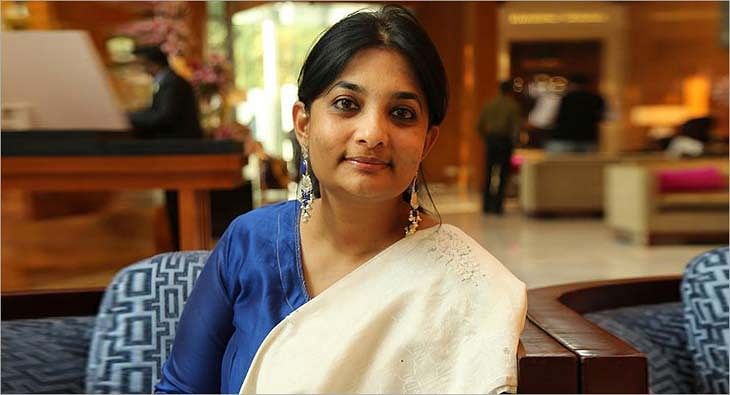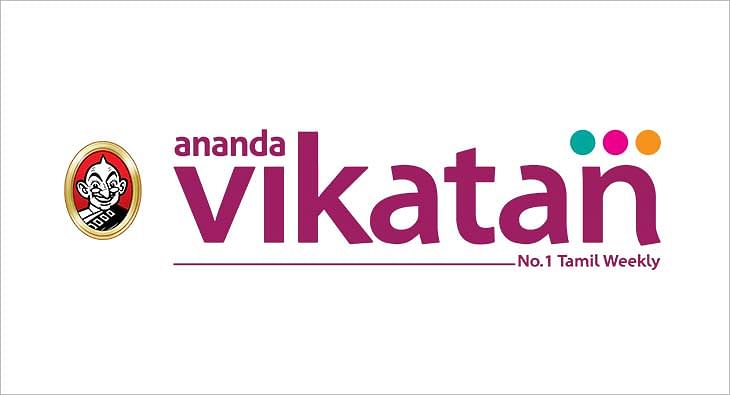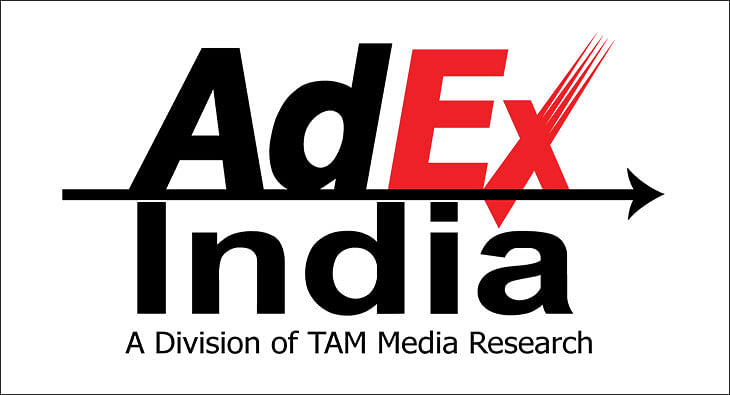WAN-IFRA 2009: ‘Just surviving is a success’
The 62nd World Newspaper Congress got underway in Hyderabad on November 30, 2009. The annual event, organised by the World Association of Newspapers and News Publishers (the merged WAN-IFRA), is being held in India for the first time. The first session of the Congress began with an exciting and stimulating discussion on issues concerning free press around the globe.

The 62nd World Newspaper Congress got underway in Hyderabad on November 30, 2009. The annual event, organised by the World Association of Newspapers and News Publishers (the merged WAN-IFRA), is being held in India for the first time. The first session of the Congress began with an exciting and stimulating discussion on issues concerning free press around the globe.
From its core theme of whether newspapers can sustain their mission without a business, the session drifted towards the issues of freedom of press across different parts of the globe like Russia, Guatemala, Morocco, South Africa and Pakistan, and highlighted the pressure that newspapers are facing in the midst of economic and political turmoil.
Setting a diplomatic note to the session, Sasa Vucinic, Managing Director, Media Development Loan Fund (MDLF), and also the moderator of the session, started with a video clip that highlighted the problem of sustaining a mission without business.
Chris Elliott, Managing Director, The Guardian, UK, stressed on the fact that one had to have a coherent commercial strategy with the editorial mission and business objectives of the publication. He said that they were fortunate that The Guardian was a trust-owned company, which supported the publication as a cushion, unlike the public limited companies.
“Other businesses of The Guardian media group supported us in the dark times,” he said, adding that in the British people were not used to paying for a newspaper, and in recessionary times, there was severe competition from national newspapers. “Newspapers today need to combine the print-web strategies and invest in ideas and innovations,” he concluded.
Irina Samokhina, CEO, Krestyanin, Rostov-on-Don, Russia, spoke about the issues that they had to deal with in running a non-state newspaper in Russia with the mission of educating and raising awareness among the people of countryside. “Since 1991, when non-state newspapers were allowed in Russia, we were happy with the healthy competition, but we were often asked to change our goals. But our mission became stronger with time. We compete with the competition with our content as we can’t compete with state newspapers in the price factor,” she added.
Samokhina further said that they faced continuous pressure of writing against the State. “Nowadays, it is difficult for us to write about local governors as they are usually silent in their response to the issues being raised,” she said. Samokhina also shared a case where the newspaper had faced a law suit for writing about a local governor gifting a piece of restricted land to his wife and son and how WAN’s (World Association of Newspaper) intervention had helped them in the case.
Ahmed Bachemsi, Publisher, Tel Quel and Nichane, Morocco, then spoke about similar pressure from the state faced by an independent newspaper, and also shared a few tricks that they had adopted to keep their boat sailing in turbulent times. He started by sharing the perceived political, economic and socio-cultural impression that the people had in the dictatorship period, where media played the role of royal propaganda and how they had set out with a motivation to reverse the perception and give the real picture of what Morocco actually was.
“When we started out, we got about 15 shareholders in the company. As we implemented our mission, half of them left us and today we have six shareholders with us,” he said, adding that in order to sustain their sales objectives, they used to have dramatic cover stories that would interest people and increase readership. In order to keep the corporate community happy, they introduced a page called ‘corporate communication’ that would publish content of advertisers in an edited format.
“We also faced pressure from the authorities, especially the royal palace, and we would measure our risks every time we write about them. Our formula was to go just one step beyond the limit. And that would set a new limit for us next time. Also, we would keep them happy by emphasising on good news in a big way, which would flatter them,” Bachemsi further said.
Another trick that he had used to keep the powers happy was to use big pictures of the governing bodies and influencers, even if the story was investigative and negative in nature. “Seeing big pictures they forget what is written inside,” he noted.
Sasa Vucinic then moved to the next speaker, Joze Rubber Zanora, Publisher of El Periodico, Guatemala, with the question regarding how many times there had been attacks on his life. Zanora gave a background of the political situation in Central America that had just come out of a 30-year cold war and the state relationships between state powers, military organisation and drug traffickers. “We started with the objective of raising awareness of what was happening in the region and we had to face lots of problems from the authorities because of that,” he said.
Zanora went on to say how advertisers were asked not to deal with them by the state and were even harassed, kidnapped and attacked several times. “I think we need to be creative, courageous and bold and strike a balance where journalism is more important,” he concluded, recounting the attacks that he had faced from the organisations because of the content of his publication.
Next was Najam Sethi, Editor-in-Chief, Friday Times and Daily Times, Pakistan, who gave an oversight of the media scenario in Pakistan and said that the media there was facing a reverse problem. “The media in Pakistan has a lot of freedom and has very less of censorship, but the issue is that we have no sense of responsibility. We need a code of conduct to deal with terrorism,” he noted.
Sethi further said that a decade earlier, his publication was one of the few that wrote against terrorists groups and actually called them terrorists, while other media groups were projecting them as heroes. “As a result, we have received bombing threats from these organisations. Now that the tide has turned against us, our stand is being recognised,” he said. He also mentioned that their secular ideas were being perceived as non-religious ideas and that they were being accused of being secular enemies of Islam.
Trevor Ncube, Chairman of the Board of Mail & Guardian, South Africa, started his note by saying that profitability of private media acted as the biggest defence to press freedom. Ncube recently invested $3 million to start a publication in Zimbabwe. He said that after 10 years of political and economic turmoil, the environment in the country was fatigued and polarised. “Now, global relations have brought back hope in the country and we feel that Zimbabwe needs a daily newspaper that will heal the nation and jointly work towards rebuilding the country,” he concluded.
Read more news about (internet advertising India, internet advertising, advertising India, digital advertising India, media advertising India)
For more updates, be socially connected with us onInstagram, LinkedIn, Twitter, Facebook Youtube & Whatsapp
DNA to shut down Mumbai and Ahmedabad print editions
The publication said it will now be 'focussing on its online brand which has grown manifold in the digital space'
Daily News and Analysis (DNA) on Wednesday announced that it will be shutting down its print editions in Mumbai and Ahmedabad. In February this year, the Zee Media Group-owned English daily shut down the Delhi edition. The Pune and Bengaluru editions were shut in 2014.
Announcing the decision in an ad in the newspaper, it was said DNA will be focussing on its online brand which has grown “manifolds in the digital space”.
It said that its “readers especially the younger audience preferred reading on their mobile phones. “We thank each one of you for the print readership over the past 14 years. The print publication for Mumbai and Ahmedabad will be ceased effective 10th October 2019, Thursday till further notice,” read the announcement.

Talking about the development, a former editor of the newspaper shared, “They conducted a town hall meeting to update their existing employees about the news of shutdown.”
Read more news about (internet advertising India, internet advertising, advertising India, digital advertising India, media advertising India)
For more updates, be socially connected with us onInstagram, LinkedIn, Twitter, Facebook Youtube & Whatsapp
I hope my book helps women maximise their potential: Apurva Purohit
Purohit, President, Jagran Prakashan, launched her new book 'Lady You’re the Boss' at an exclusive gathering attended by Madhukar Kamath, Shashi Sinha and Saugata Gupta, among others
Apurva Purohit, President, Jagran Prakashan, launched her new book 'Lady You’re the Boss' at an exclusive gathering of industry bigwigs and friends at the Arth Lounge in Khar, Mumbai on September 26. The book follows Purohit's very successful first book, 'Lady, You’re not a Man – The Adventures of a Woman at Work', which is in its 21st edition now.
Published by Westland Publications, an Amazon company, 'Lady You're the Boss' draws from Purohit’s personal experiences and lays down a plan of action for women to persevere and reclaim their true potential, without minimizing themselves in any way.
It addresses the process of working women transitioning from mid-management to senior leadership roles and aims to empower women across sectors and organizations, encouraging them to work their way to the corner office, consciously defeating those internal and external biases that stop many a working woman from chasing her dreams.
Actor Divya Dutta, cricket commentator Harsha Bhogle and Purohit herself read out chapters from the book at the event while Karthika VK of Westland Publications spoke of the experience of publishing the book.
Talking about the book, Saugata Gupta, MD and CEO, Marico, who was present at the launch, said, “We are very lucky that there are many women in the Indian corporate world who can break the glass ceiling. This book will be an interesting read. I have a daughter who’s very achievement-oriented too and I always encourage diversity in the workplace."
“I’m really looking forward to reading this book, going by the excerpts Apurva and the rest have read out today. Most importantly, it’s not pretentious, but sounds like something that would inspire everyone," said Abhijit Avasthi, Co-founder, Sideways.
Thanking the audience present at the launch, Purohit said, “I really appreciate that all my friends, colleagues and family are present here. Thanks also to my wonderful team. I’m hoping that this book will help all kinds of women realise their worth. When young girls grow up, they don’t know how to stand up because they sometimes feel incompetent. I’m hoping that 'Lady You’re the Boss' will help women maximise their potential and live up to all the dreams they’ve had.”
Madhukar Kamath, Emeritus, DDB Mudra, Shalini Kamath of SK & Associates, Vivek Sharma and Bharat Puri of Pidilite Industries, Shashi Sinha of IPG Mediabrands India, Ramesh Narayan of IAA, Pawan Bansal of Jagran Engage, Kartik Kalla of Radio City, Joe Thaliath of FCB Interface, Anil Viswanathan of Mondelez Foods India and Sanjay Purohit, Group CEO, Sapphire Foods (who is married to Apurva Purohit) were among those present at the event.
Read more news about (internet advertising India, internet advertising, advertising India, digital advertising India, media advertising India)
For more updates, be socially connected with us onInstagram, LinkedIn, Twitter, Facebook Youtube & Whatsapp
TOI announces 3rd edition of #NoConditionsApply – Sindoor Khela campaign
Conceptualized to promote gender equality, the campaign calls for inclusion of women in celebrations and combats discrimination they face in terms of caste, marital status and sexual orientation
Two years ago, an initiative by The Times of India reinterpreted a 400-year-old tradition with the award-winning campaign #NoConditionsApply – Sindoor Khela. Conceptualized to promote gender equality, the campaign calls attention to the issue of inclusion of women in celebrations and combats the discrimination that they face in terms of their caste, creed, marital status, sexual orientation etc. The campaign won accolades in India and abroad.
In its 3rd year, #NoConditionsApply – Sindoor Khela initiative aims to reach the corners of the nation and beyond spreading this message of inclusive celebration that celebrates womanhood sans any discrimination based on ‘labels’ and societal barriers.
The campaign that was conceptualized in 2017 and was organized for one pandal in Kolkata. The Times of India along with the puja committee of Tridhara Sammilani, which is also one of the oldest and most prestigious puja pandals in Kolkata, organized the first ever inclusive Sindoor Khela – which invited widows and transgenders to be a part of this grand celebration.
What started with a single pandal celebration, went on to become a national movement with participation from over 100 pandals in 2018. The campaign hopes the movement will achieve the status of a global phenomenon this year. Owing to the widespread popularity of the campaign in its previous two editions, TOI has been getting several requests of extending the campaign to newer cities.
This year, the campaign spreads its wings across the country and beyond, and #NoConditionsApply encourages readers to host an inclusive Sindoor Khela and celebrate along with all sisters irrespective of the labels society may have attached to them.
The campaign urges patrons to bring a sister along to the celebration – sister being used metaphorically for any women they know of in their family, friend and neighbourhood, who have been shunned to be a part of the celebration.
The campaign asks the patron to invite their lesbian sister, transgender sister, widowed sister, divorcee sister, single mother sister to the celebrations this year. Since its inception, the campaign has witnessed phenomenal support worldwide from people who wanted to offer their support and be a part of the movement.
Garnering support from Kolkata’s agents of change - Rituparna Sengupta, Gargee Roychowdhury, Manobi Bandyopadhyay and Sohini Sengupta the campaign extends an invitation to women to #BringaSisterAlong this Pujo. With the phenomenal success of its previous editions, garnering 718 mn reach over the past 2 years, the latest edition aims to extend inclusion not just in Sindoor Khela but across all celebrations as part of the fabric of our tradition.
Commenting on the launch, Sanjeev Bhargava, Director, Brand TOI, said, “The #NoConditionsApply – Sindoor Khela campaign is extremely special to all of us, owing to the change that it has fostered across the various communities in India. While it is contextualized to a Bengali cultural event, the message of inclusive celebration and sisterhood resonates with everyone. We have always left no stone unturned in spreading the message across the various strata of society. Our success lies not in the awards that this campaign has garnered but in the fact that the initiative has grown from strength to strength and is rapidly becoming a symbol of inclusiveness. We are grateful for the overwhelming response we have received from women across the country who have shared their celebrations with us. The fact that it is back for the third time is testament to the widespread movement that the campaign is now. I thank everyone who has supported us in making the change happen.”
Speaking about the campaign, Swati Bhattacharya, Chief Creative Officer, FCB Ulka said, “This piece of work has been a big emotional milestone for me personally. This bloodless coup of a campaign shows the world that joy love friendship and beauty can help break down walls an inclusive Sindoor Khela shows us that sisterhood is one of biggest ideas that can change the world we live in.”
Read more news about (internet advertising India, internet advertising, advertising India, digital advertising India, media advertising India)
For more updates, be socially connected with us onInstagram, LinkedIn, Twitter, Facebook Youtube & Whatsapp
We’re aggressively driving partnerships across the ecosystem: Archana Anand, ZEE5 Global
Anand, Chief Business Officer, ZEE5 Global, tells us about the platform's partnership with Google and the markets the brand is most upbeat about
From being one of the most downloaded OTT apps in places like Bangladesh and Sri Lanka to curating content especially for the global audience, ZEE5 is upbeat about their global roadmap. Archana Anand, Chief Business Officer at ZEE5 Global talks about the markets the brand is most upbeat about. ZEE5 also brought Google on board to help them achieve maximum reach globally. Google did a thorough market analysis of the audiences interested in the content that was owned and created by ZEE.
ZEE5 seems to have ranked as the No 1 entertainment app in key markets within weeks of its launch. Can you please elaborate on the markets?
Bangladesh and Sri Lanka were among the key SAARC markets where we galloped to the No 1 position, that too within a few weeks of launch. We launched ZEE5 across 190+ markets in Oct 2018 and rolled out our marketing campaign a few weeks later in Jan 2019 across select markets in APAC. Our immediate priority was to establish ourselves firmly as the largest and most comprehensive destination for Indian entertainment, especially in SAARC countries where our content has the highest direct affinity. We used inputs from local market specialists and extensive market insights to create very specifically targeted media campaigns basis for various benchmarks to achieve quick market penetration with rapid awareness and usage. All this and more resulted in ZEE5 becoming the No. 1 entertainment app across key markets in SAARC including Bangladesh and Sri Lanka within just a few weeks of launch, and now we look to replicate this success story across other markets soon too.
You are also one of the first OTT platforms from India to customize Indian content for global audiences? Tell us about the markets you are upbeat about? What is the kind of content you are curating for the global audience?
As we deepened our presence across international markets, we realized that the huge love for Bollywood and Indian TV Shows is not restricted to Indians or even South Asians abroad, but is also huge among mainstream audiences. This was also supported by the insights from our local linear channel teams. Therefore, in April 2019, we launched a range of Indian content including Bollywood movies dubbed across 5 international languages, Bahasa Malay, Thai, Indo Bahasa, German and Russian, expanding our target audience beyond South Asians to mainstream audiences too across these markets, and while its early days, we are seeing a great response.
Any particular reason why Middle East is a strong market and you have done so many associations there?
The Middle East is a very exciting market for us as there is a huge Indian and South Asian community there which is already familiar with and loves our content across languages like Hindi, Malayalam, Tamil, Bengali, and others. We have a strong bouquet of content that’s striking a chord among the South Indian community in the market. There’s also a huge demand for Bollywood movies in the Middle East among local audiences too and our catalogue of 2000+ movies as well as our Originals, many of which have Bollywood stars, caters superbly to that demand. Our recent launches like Uri, Simmba, and Kedarnath among others have done really well as have our Originals like Kaafir, The Final Call, and Poison etc, n fact the Middle East was the first of the three markets that we kicked off our new campaign ‘Full On Entertainment’ in, through various on-ground events. Our recent partnerships with Eurostar and the LuLu Group are only the first of many and we have some very key telco partnerships also in the pipeline.
You have also roped in Google as a consulting partner to build their global strategy and execution plan. Tell us more about the partnership. What exactly would be Google’s role?
Launching globally across 190 countries required an in-depth understanding of the digital audiences across the markets, especially the far-flung ones. Prioritizing our key markets to ensure that we drive clear wins out of them was going to be an important task at hand for us and Google was the obvious choice for us to partner with for our global rollout. As a consulting partner, Google did a thorough market analysis of the audiences interested in the content that was owned and created by ZEE and that threw up some very key insights. Those, along with inputs from local market specialists and our own business teams were used to create media plans and strategies basis the benchmarks.
Every OTT platform now also has telecom partners, while we know you have partnerships with Airtel in India do you have any such tie-ups with international players too since you are aggressively promoting your platform globally?
Absolutely - we’re very aggressively driving partnerships across the ecosystem. Since our launch in October 2018, we have built out a slew of strategic partnerships in every key market like Dialog in Sri Lanka, Celcom in Malaysia, Robi Axiata in Bangladesh and others. We’ve also partnered with Apigate for multiple markets, and with Zeasn and Netrange for their Smart TV range. We’re also building out a strong offline presence in key markets like the Middle East with our partnerships with key retailers like the LuLu Group and Eurostar. We have multiple partnership announcements also coming up over the next several weeks including our first in Australia.
Read more news about (internet advertising India, internet advertising, advertising India, digital advertising India, media advertising India)
For more updates, be socially connected with us onInstagram, LinkedIn, Twitter, Facebook Youtube & Whatsapp
Vikatan Group revamps print portfolio
As part of its restructuring exercise, the print bouquet has been realigned as core magazines and special interest magazines
As part of its restructuring exercise, the Vikatan group has revamped its print portfolio with a sharper focus towards its content reorientation. The print bouquet has been realigned as core magazines and special interest magazines.
The core magazine bouquet consists of the 93-year-old ‘Ananda Vikatan’, weekly magazine in Tamil, which has a Total Readership (TR) of 33.94 Lakhs (IRS 2019, Q2); ‘Aval Vikatan’, fortnightly women’s Tamil magazine, with readership (TR) of 13.26 Lakh (IRS 2019, Q2); and ‘Junior Vikatan’, bi-weekly, Tamil Socio-political magazine.
The special interest magazine bouquet includes, ‘Nanayam Vikatan’, (TR of 3.46 Lakh / IRS 2019Q2), a personal finance & entrepreneurship magazine; ‘Pasumai Vikatan’, (TR of 8.55 Lakh / IRS 2019Q2), a magazine devoted & focussed to the organic farming and inclusive farm practices; ‘Motor Vikatan’, (TR 3.72 Lakh / IRS 2019Q2), auto magazine in Tamil; ‘Sakthi Vikatan’, (TR of 4.88 Lakh / IRS 2019, Q2), the spiritual magazine about the religious culture and heritage of the land, and ‘Aval kitchen’, the brand extension of ‘Aval Vikatan’ Magazine focusing on food, recipe and kitchen.
In the process, two of its print titles, ‘Vikatan Thadam’ & ‘Doctor’ Vikatan has been shelved from September 2019, while ‘Aval Manamagal’, the quarterly bridal magazine has been converted as an advertiser driven publication in the B2B route and ‘Chutti Vikatan’, the children’s magazine will take a completely new format to directly engage with schools and children.
Their content on literature, health & wellness, bridal fashion & shopping, and children-focussed content will be seamlessly integrated in print & digital platforms.
“After immense deliberations on content and market acceptability, we have restructured our print portfolio and two titles have been shelved and amongst two others, ‘Aval Manamagal’ has been migrated to AFP model, while ‘Chutti Vikatan’ has been contextualized to the children & school ecosystem” said, B Srinivasan, Managing Director, Vikatan Group, “The content will be seamlessly integrated with the rest of the magazines. Vikatan management remains fully committed to all other group magazines.”

Read more news about (internet advertising India, internet advertising, advertising India, digital advertising India, media advertising India)
For more updates, be socially connected with us onInstagram, LinkedIn, Twitter, Facebook Youtube & Whatsapp
Print sees 8% rise in ad volume in Q2 2019 compared to Q1 2019: TAM Adex
There has been a 15% rise in ad volume from the Education sector in Q2 2019
While there has been an 8% indexed growth from Q1 to Q 2 2019 in the Print medium, it’s the Education sector that has increased its share dramatically as per TAM Adex data. From 11% in the first quarter, the sector has managed to increase its share of ad volumes to 26% in the second quarter. However, Auto declined to 13% from 17% while Services went down from 18% to 14%.
If we compare the first half of 2018 to the first half of 2019, Education has managed to take the top spot in both the years. Although the shares went down by 1% from 2018 to 2019, it is still the top sector. Auto gained 1% more share bringing it to 16% from 15% in 2018. Ad volumes have dropped considerably from H1 2018 to H1 2019 by 6%. All other sectors have gone down by 1%.
Allen Career Institute and Aakash Medical College Maruti Car range, Hero Two-wheelers, Indira Infertility & Test Tube Baby Centre and Homecare International are the major brands in the first half of this year. However, the overall indexed growth of ad volumes has fallen by 7% in the first half of 2019 compared to H1 2018.
Read more news about (internet advertising India, internet advertising, advertising India, digital advertising India, media advertising India)
For more updates, be socially connected with us onInstagram, LinkedIn, Twitter, Facebook Youtube & Whatsapp
Delhi High Court restrains publication of defamatory content against EbixCash by Viceroy
The Court issued a dynamic injunction restraining publication or republication of certain defamatory articles against EbixCash by US-based Viceroy Research Group
The Delhi High Court has issued a dynamic injunction order restraining publication or republication of the contents of certain defamatory articles against EbixCash and Ebix (Nasdaq:Ebix), by US- based Viceroy Research Group, Fraser Perring and other principals of Viceroy.
The court also directed the Times Group's ET Prime, to take down an article published July 31, 2019, since the article was largely based on statements made by Viceroy. The order also directed all the defendants including Viceroy, Fraser and all its principals not to publish any such content themselves or through their affiliates or agents or any other person acting on their behalf.
The issuance of a dynamic injunction by the Delhi High court is to be specially noted as a it implies that the next time any media or publication quotes Viceroy or Fraser or any of the contents of the banned piece by Delhi High court - “Goodwill hunting”; EbixCash will not need to approach the judge but just to reach out to the Registrar of court for taking down any such new article.
Delhi High Court had earlier issued an order on 8th May 2019, directing Twitter and Google to take down certain articles published by Viceroy Research Group.
In May 2019, EbixCash had approached the High Court with a plea that Viceroy Research Group had published certain articles on its website which contained defamatory information about the former. EbixCash had alleged that Viceroy Research, which holds “short selling” positions in the company and its sister concerns, was using these defamatory articles to drive down the price of the company, and thereby making profit from it.
Read more news about (internet advertising India, internet advertising, advertising India, digital advertising India, media advertising India)
For more updates, be socially connected with us onInstagram, LinkedIn, Twitter, Facebook Youtube & Whatsapp








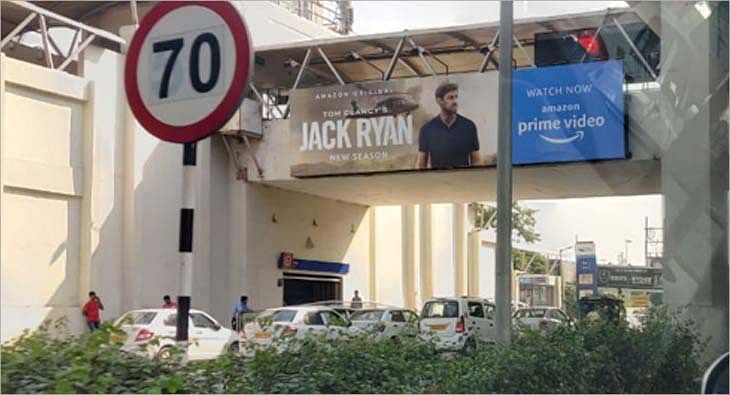





 Share
Share